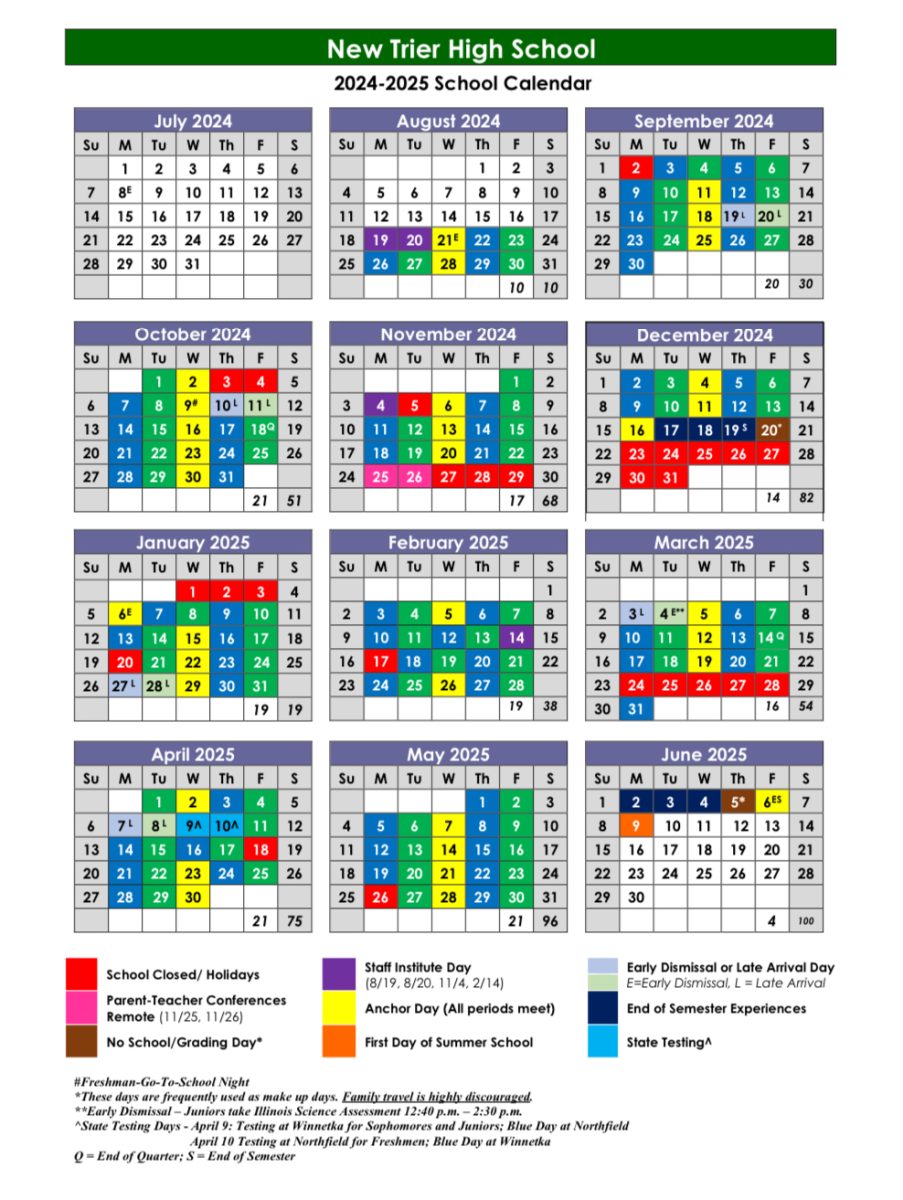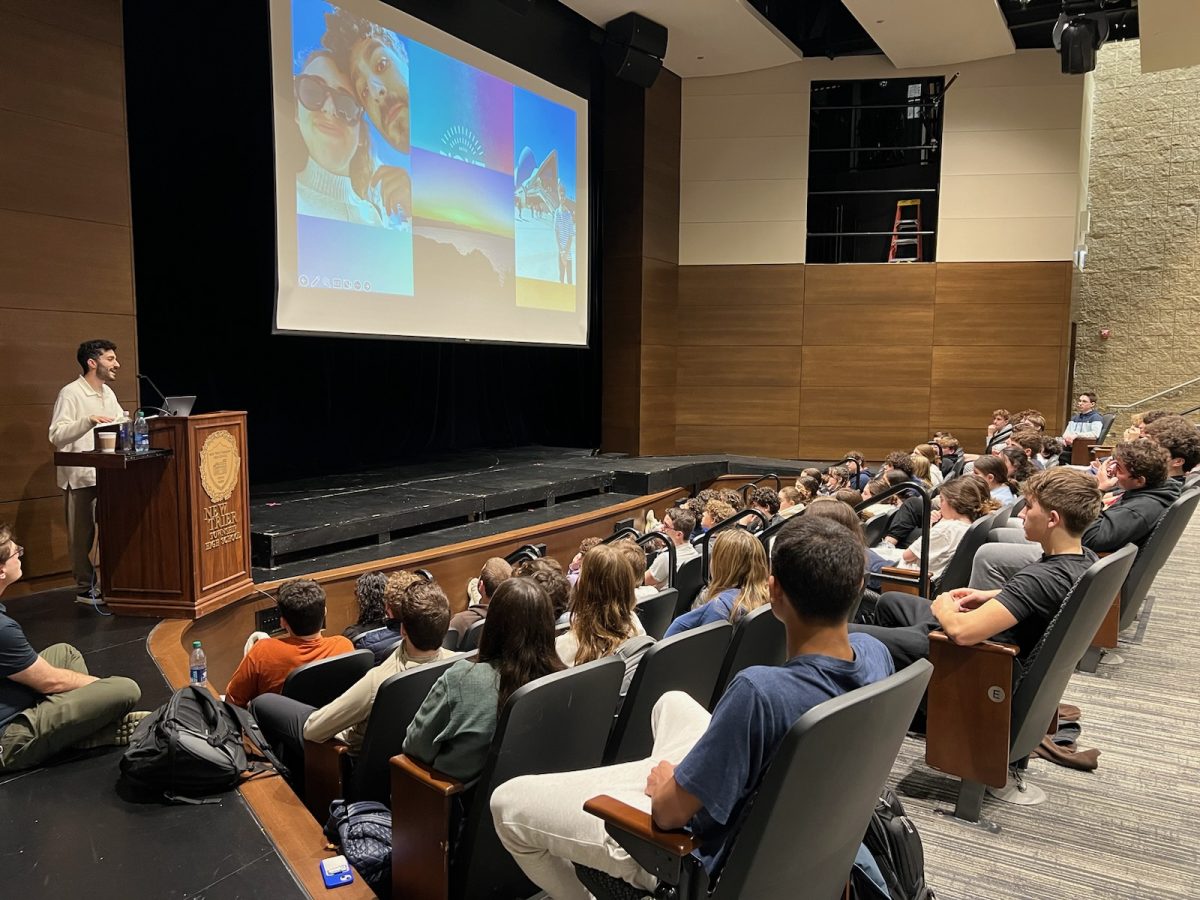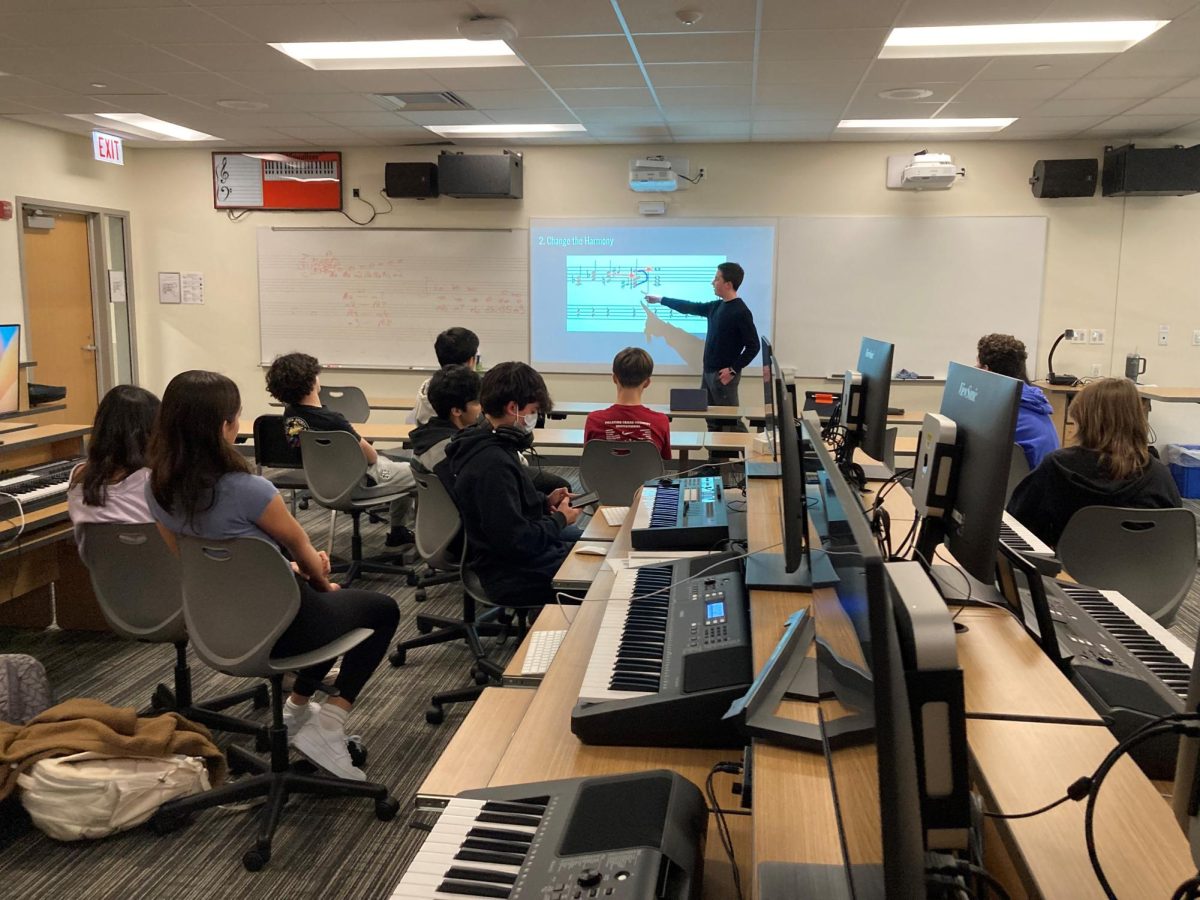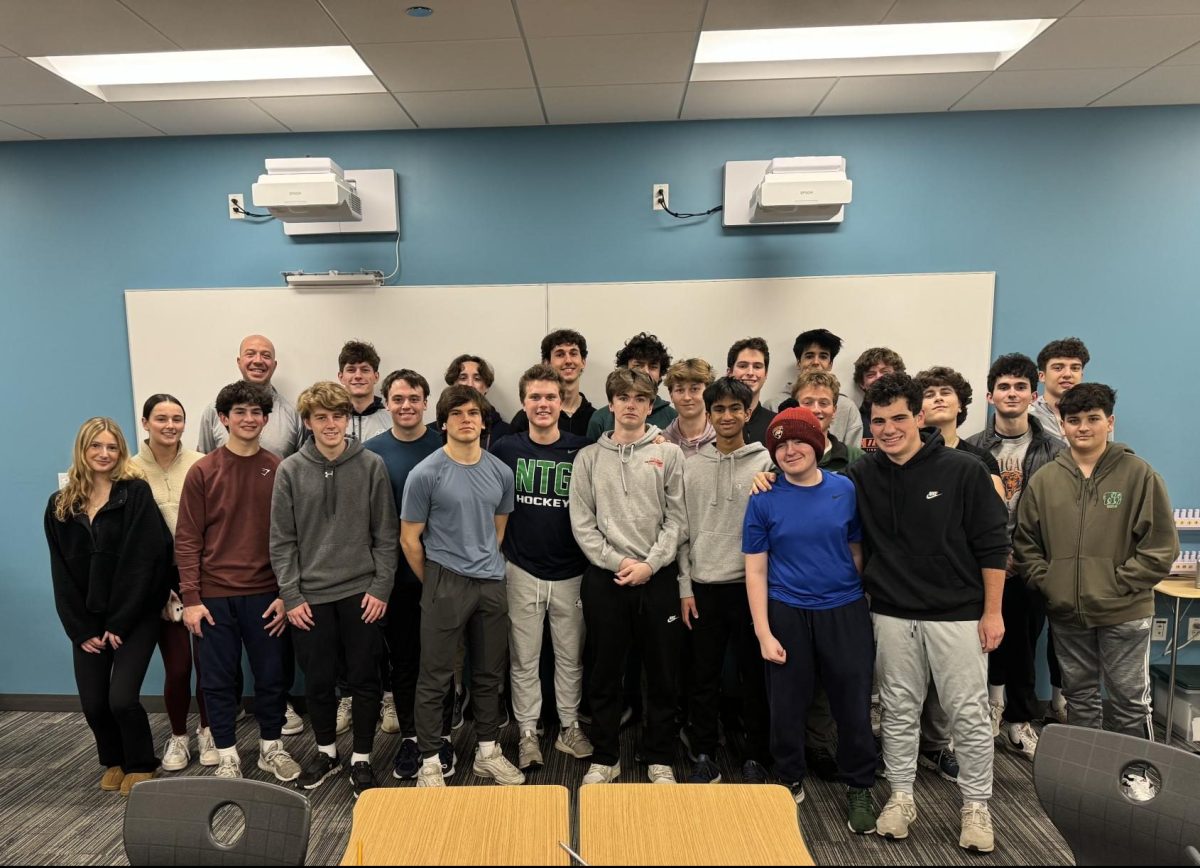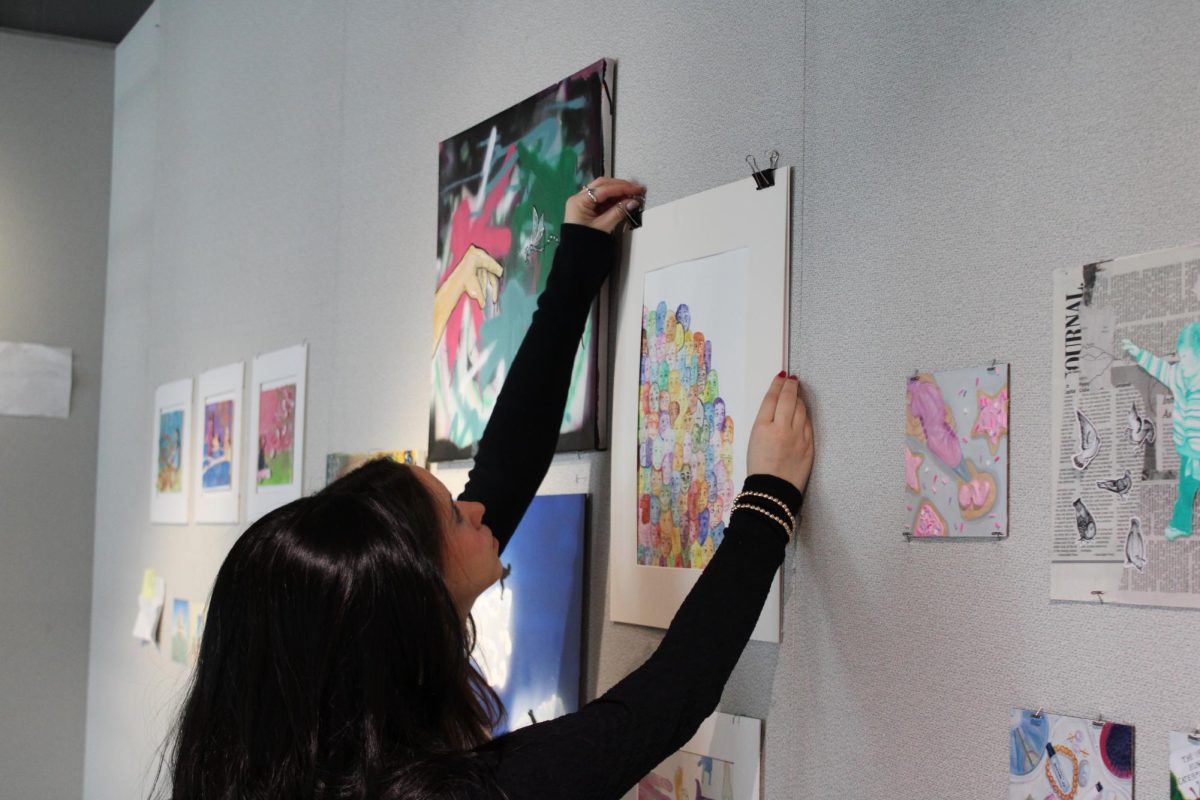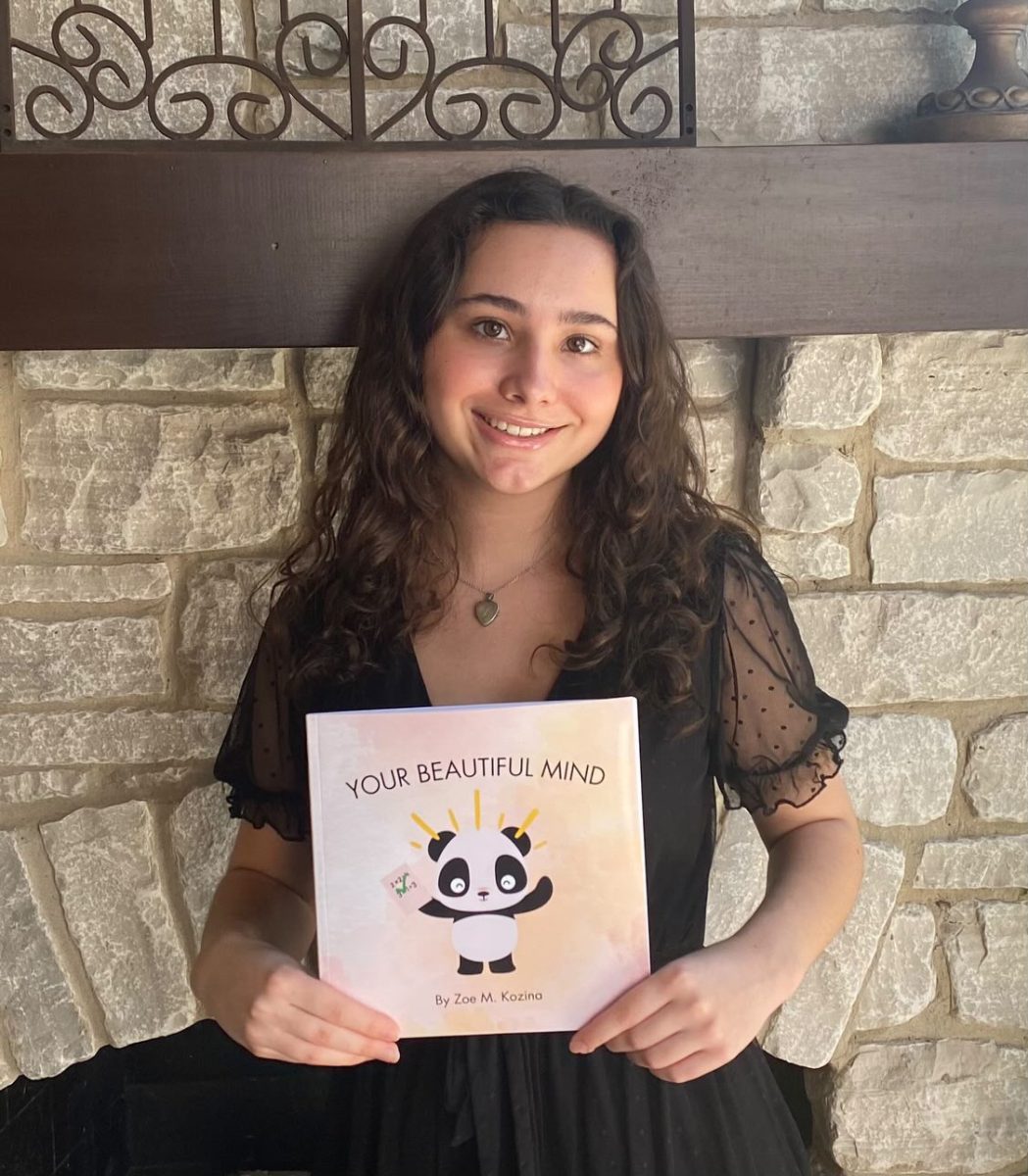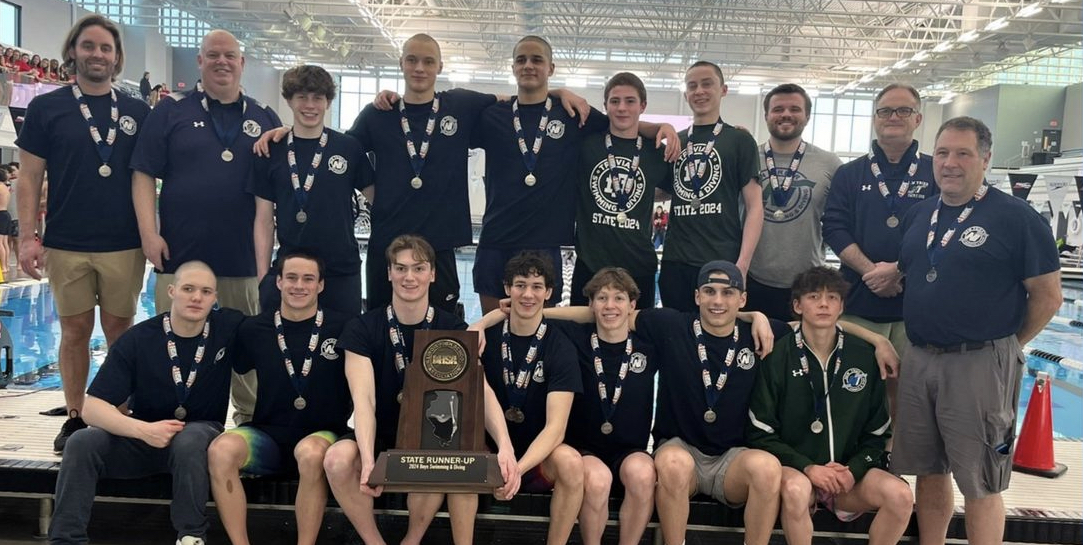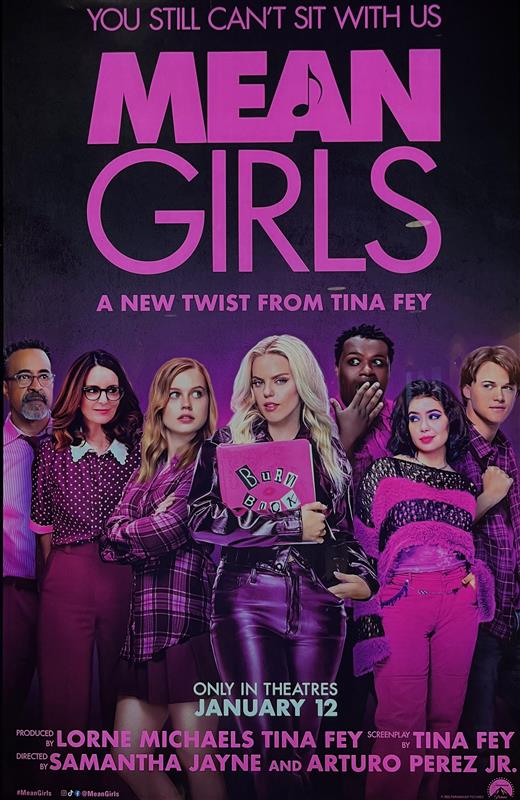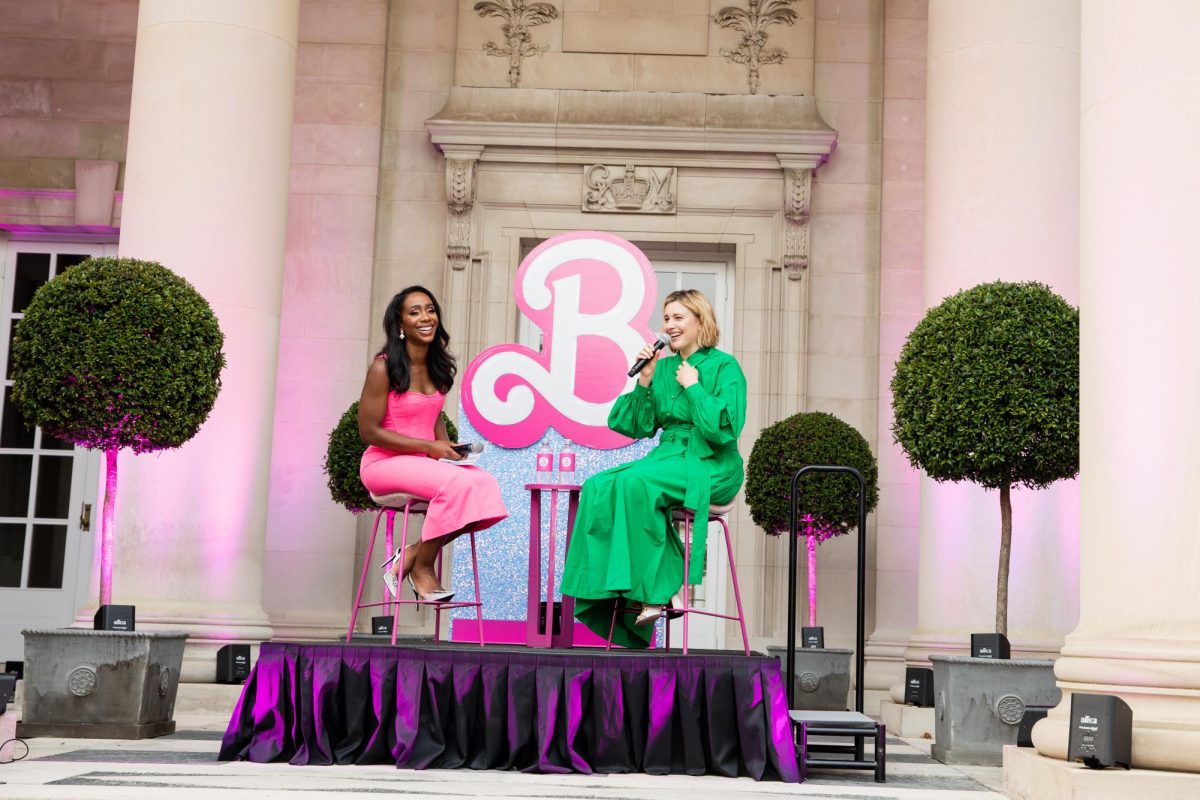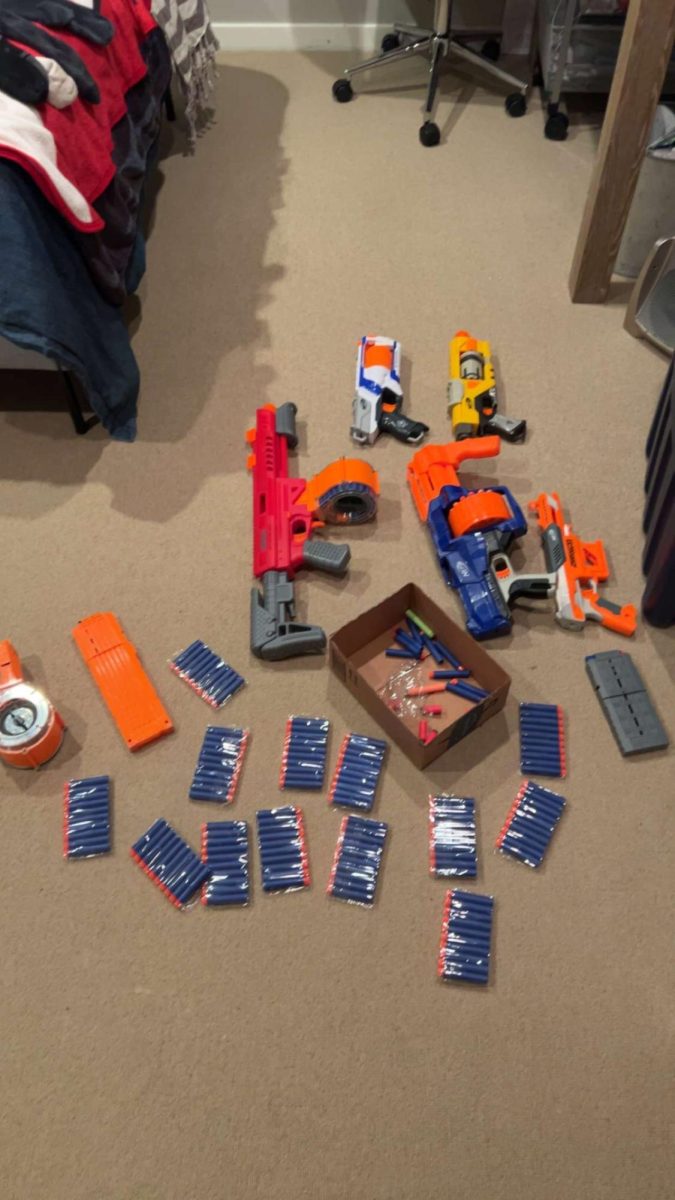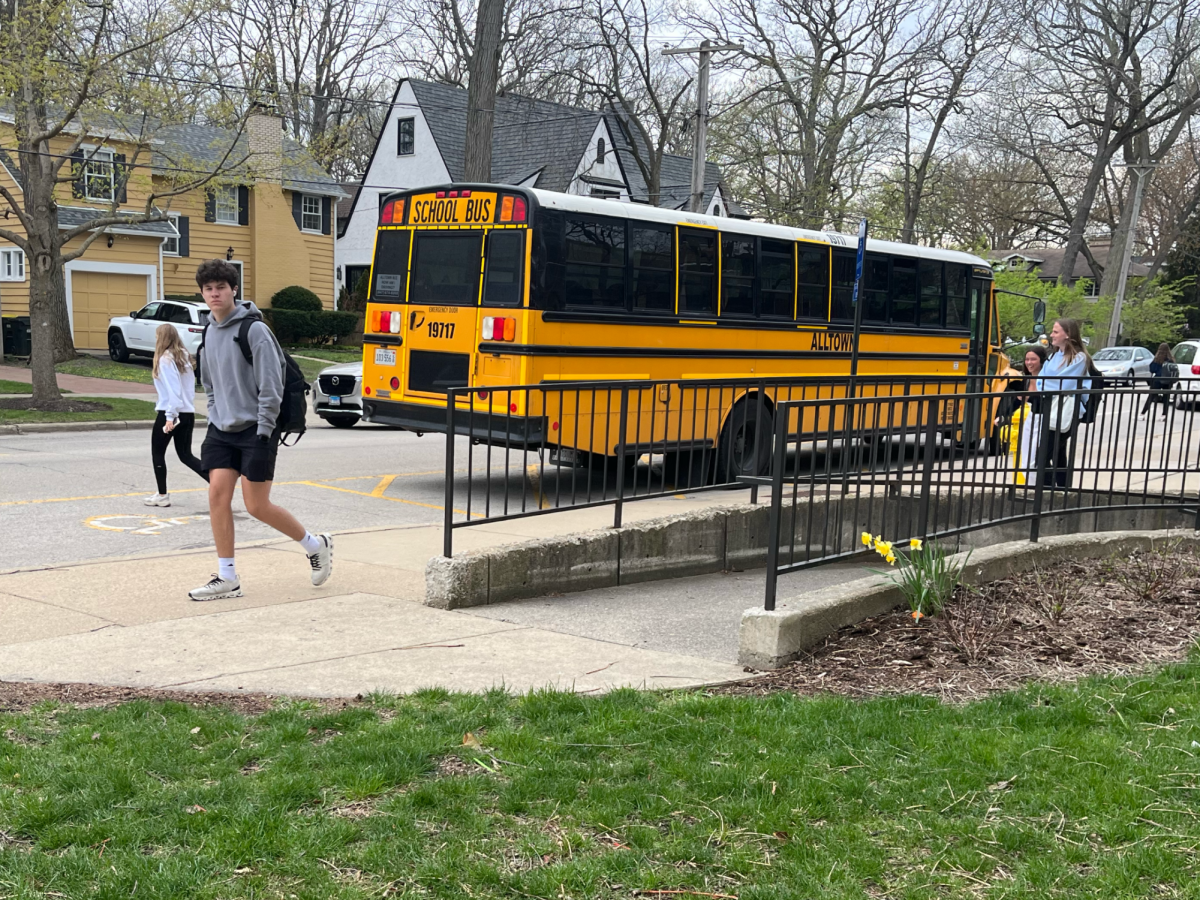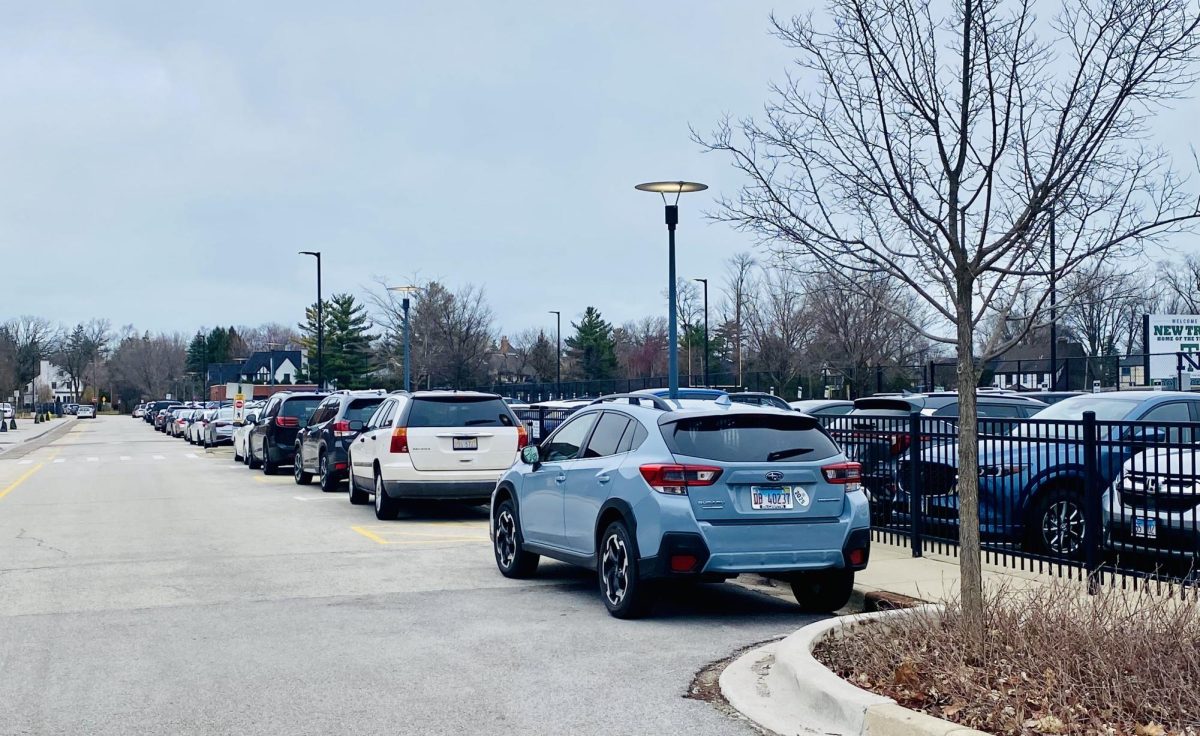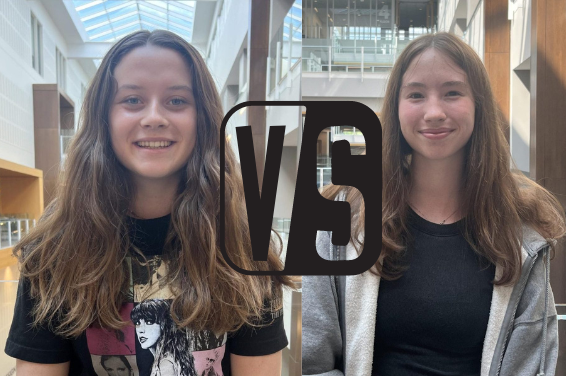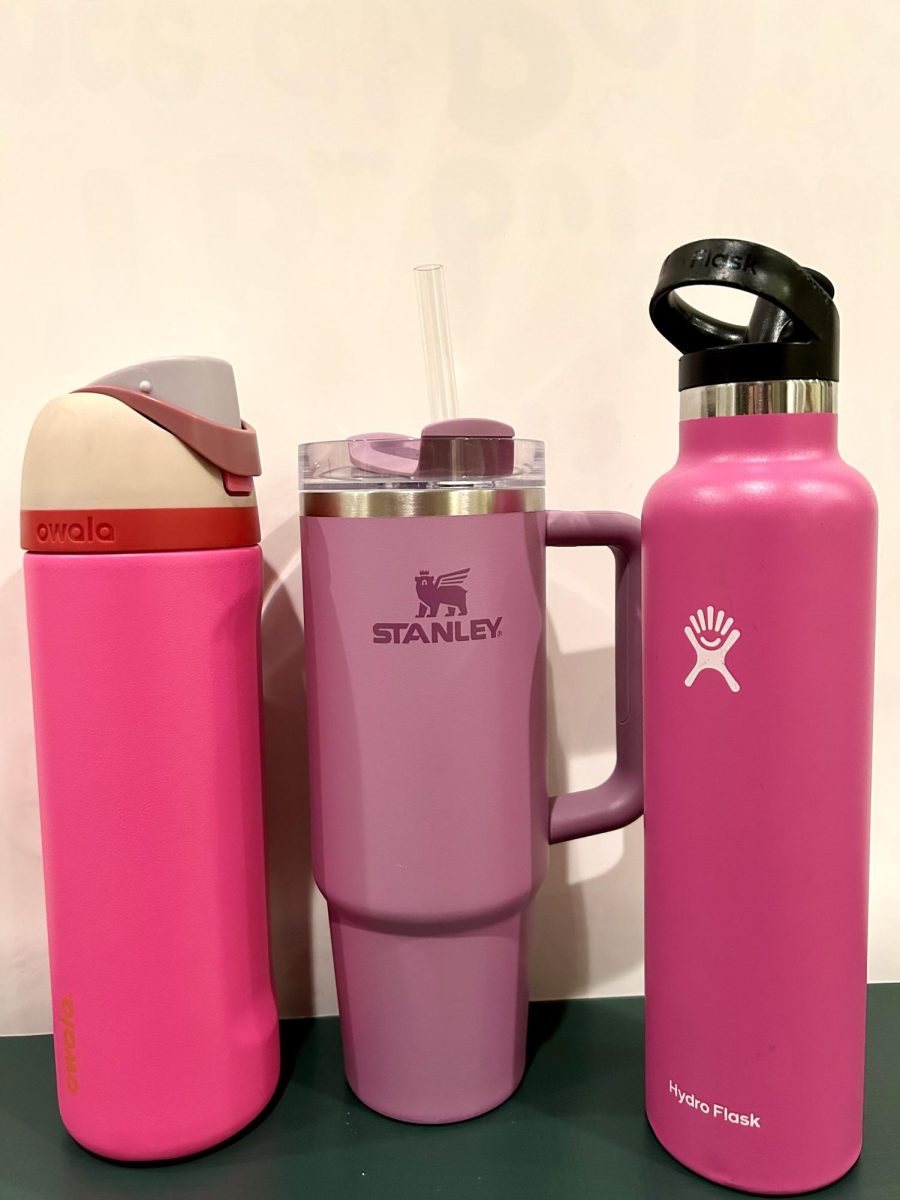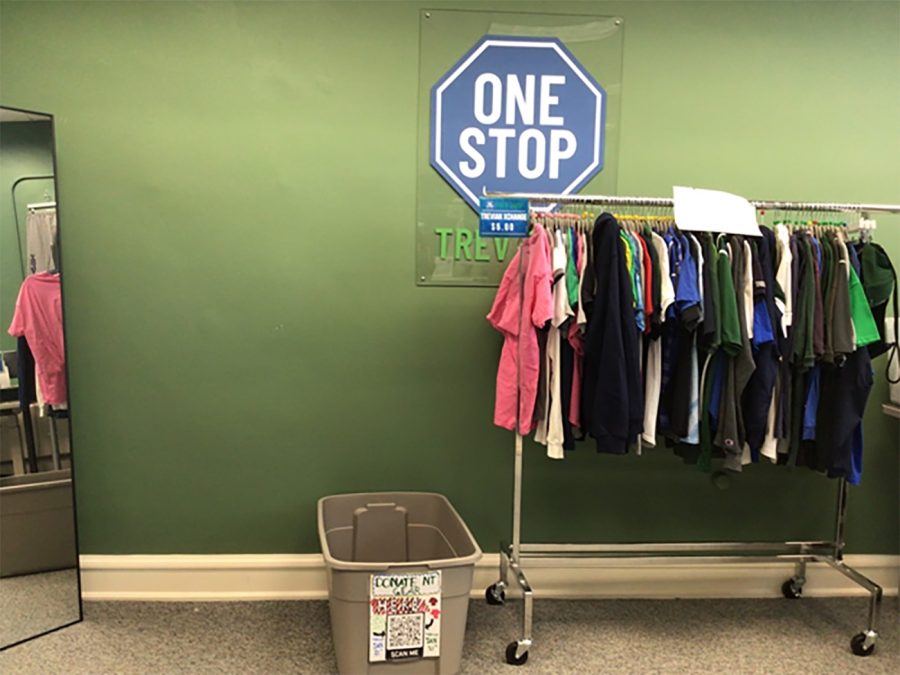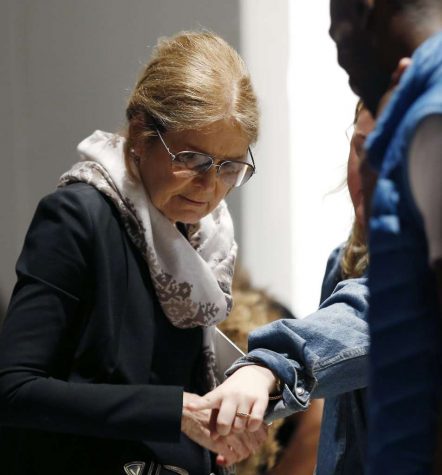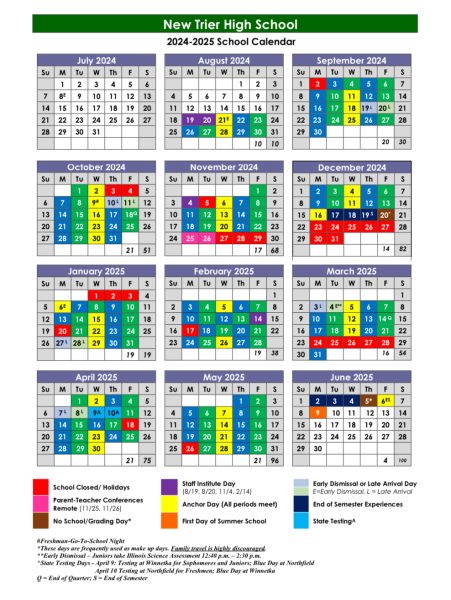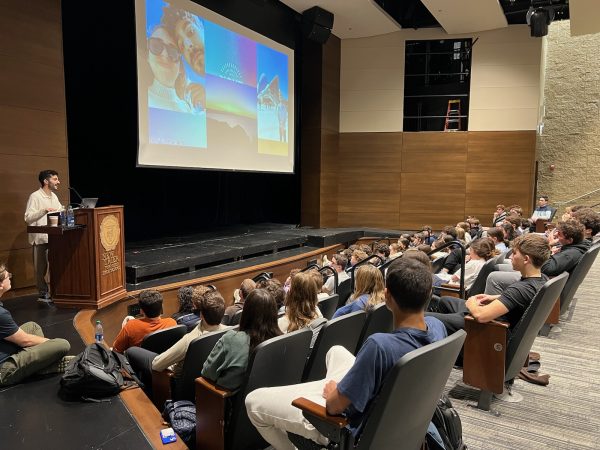Thrift Week promotes fast-fashion education
Environmental Club, One Stop Trev Shop encourage circular fashion
Environmental Club and One Stop Trev Shop hosted Thrift Week from Feb. 14 – Feb. 18 to encourage reducing waste associated with fast fashion
Thrift Week in the One Stop Trev Shop started on Feb. 14. Gently used New Trier gear donated by students will be sold in the shop for $5.00.
A portion of the proceeds will go to Redress, an organization that works to help reduce waste in the fashion industry.
Thrifting week was created by the Trev Shop and the Environmental Club, which are teaming up to promote circular fashion. The club held a clothing drive where students could donate gently used school gear and enter a raffle to win an exclusive reusable tumbler.
Clothes end up in landfills and/or in bodies of water, some of the small materials that come off in the wash, little plastic materials end up in Great Lakes and oceans and that’s one of the things really contributing to plastic pollution in our water.
— Charlotte Calkins
Through eco-friendly initiatives, club co-head junior Charlotte Calkins wants to educate students on the consequences of their consuming habits when it comes to buying clothes.
“We’re also going to teach people about fast fashion and give them resources to help them choose a different option for buying clothes, like going to a thrift shop or checking out all the online resale shops that we know, like Depop where you can get worn but really good handmade clothes,” said Calkins.
Thrift week allows the Environmental Club to educate others on the negative impacts of fast fashion.
“Fast fashion by definition, is not really well made. It’s supposed to be produced quickly so the garments wear down quickly and people get tired of them because they’re new things, and so that creates a lot of waste on the back end,” said Calkins. “Clothes end up in landfills and/or in bodies of water, some of the small materials that come off in the wash, little plastic materials end up in Great Lakes and oceans and that’s one of the things really contributing to plastic pollution in our water.”
According to business teacher Melissa Duffy, the clothes will be sold for five dollars to encourage students to think about how clothing production affects the environment.
“That really comes from trying to be conservative and thinking about the impact fast fashion is having on the environment, you know putting our future at risk,” said business teacher Melissa Duffy.
“Fast fashion” refers to rapidly mass-produced clothing articles that are sold for cheap and disposed of quickly to emphasize new trends
The Environmental Club also created a website about the impact of fast fashion, which is on QR codes of Thrift Week flyers, as well as displayed by a mannequin with thrifted clothes, according to co-head senior Claire Downey.
“We made a skirt and a top out of them for a mannequin we’re going to display in the One Stop Trev Shop,” said Downey. “The other half of the club that wanted to focus on more research is making a website promoting a circular economy, thrifting, what you should and should not do buying clothes, what companies are actually fast fashion— what brands. With that we’re tag-teaming with the One Stop Trev Shop to promote our exchange and the work we’re doing.”
The project also allows the Environmental Club to bring attention to the issue.
“I also think that purchasing from fast fashion brands is a very common thing to do. I understand that we are all broke teenagers who want to buy cute clothes. There are better ways to go about it than purchasing from companies like Forever 21 and Zara,” said Downey. “It’s not always talked about and it’s important to promote that to teenagers. We’re doing most of the spending.”
The shop believes selling used New Trier gear will be successful because students will have more items to donate.
“If you’ve been at New Trier for four years and you graduate you have so many different New Trier items,” said Duffy. “Certain students don’t play a sport anymore, or maybe the shirt doesn’t fit them so that’s a nice way for students to donate those goods then other students can buy them and wear it at a reduced price.”
Repurposed NT merch will also provide a fresh product for the Trev Shop, which only sells newer designs.
“Sometimes it just gives you an opportunity to see something unique and different in this New Trier market and logos are so saturated so having something seem like a little vintage feels cool,” Duffy said.
The One Stop Trev Shop will additionally have the opportunity to collaborate with a club and promote student activities.
“We want to support student entrepreneurs so any opportunity that we have to work with students and to have a bigger impact we’re happy to take part in it,” said Duffy. “The more we can get people involved with the store, the more activities we’re doing. I think it’s great.”
Calkins says that fast fashion can be wasteful and can end up in landfills and bodies of water. She says there are still ways to make fashion fun without purchasing from environmentally-harmful brands.
“Fashion can definitely still be fun, and I think a lot of people at our school really like fashion,” she said. “I see a lot of creative outfits but maybe you can learn to do that without purchasing from things H&M, SHEIN, try thrifting and try buying things that are sustainable. That can make a difference.”

